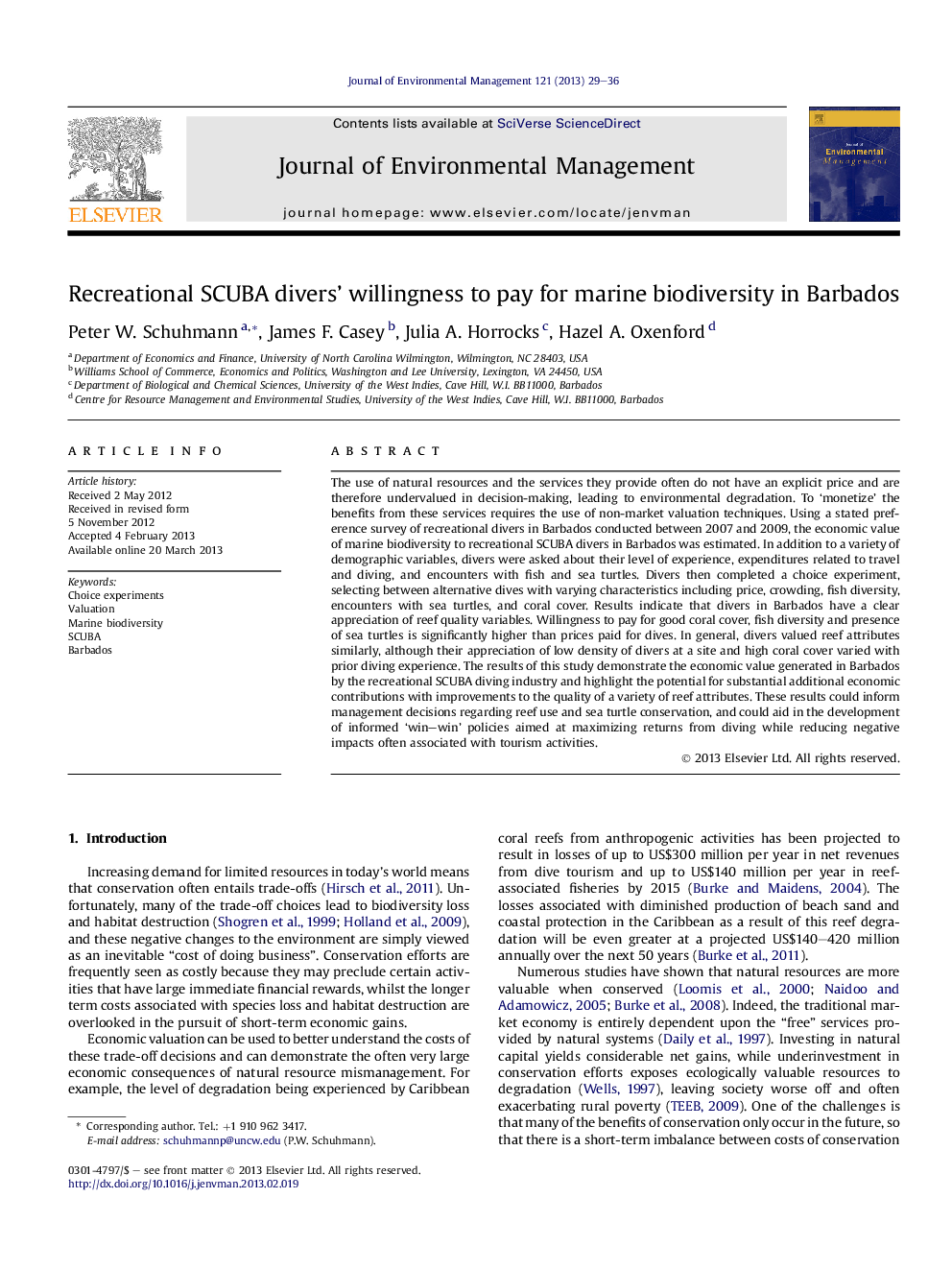| Article ID | Journal | Published Year | Pages | File Type |
|---|---|---|---|---|
| 1056352 | Journal of Environmental Management | 2013 | 8 Pages |
The use of natural resources and the services they provide often do not have an explicit price and are therefore undervalued in decision-making, leading to environmental degradation. To ‘monetize’ the benefits from these services requires the use of non-market valuation techniques. Using a stated preference survey of recreational divers in Barbados conducted between 2007 and 2009, the economic value of marine biodiversity to recreational SCUBA divers in Barbados was estimated. In addition to a variety of demographic variables, divers were asked about their level of experience, expenditures related to travel and diving, and encounters with fish and sea turtles. Divers then completed a choice experiment, selecting between alternative dives with varying characteristics including price, crowding, fish diversity, encounters with sea turtles, and coral cover. Results indicate that divers in Barbados have a clear appreciation of reef quality variables. Willingness to pay for good coral cover, fish diversity and presence of sea turtles is significantly higher than prices paid for dives. In general, divers valued reef attributes similarly, although their appreciation of low density of divers at a site and high coral cover varied with prior diving experience. The results of this study demonstrate the economic value generated in Barbados by the recreational SCUBA diving industry and highlight the potential for substantial additional economic contributions with improvements to the quality of a variety of reef attributes. These results could inform management decisions regarding reef use and sea turtle conservation, and could aid in the development of informed ‘win–win’ policies aimed at maximizing returns from diving while reducing negative impacts often associated with tourism activities.
► The value of biodiversity to SCUBA divers is estimated with a choice experiment. ► Willingness to pay is higher than prices paid for dives. ► Divers have homogenous preferences, valuing reef attributes similarly. ► Improvements to the quality of reef attributes may increase economic gains.
